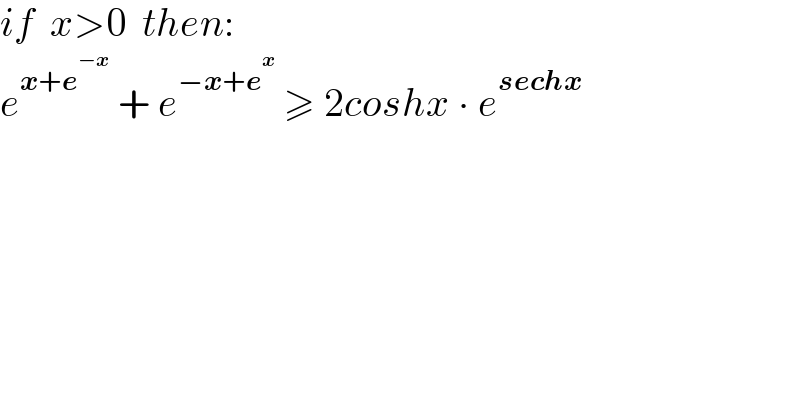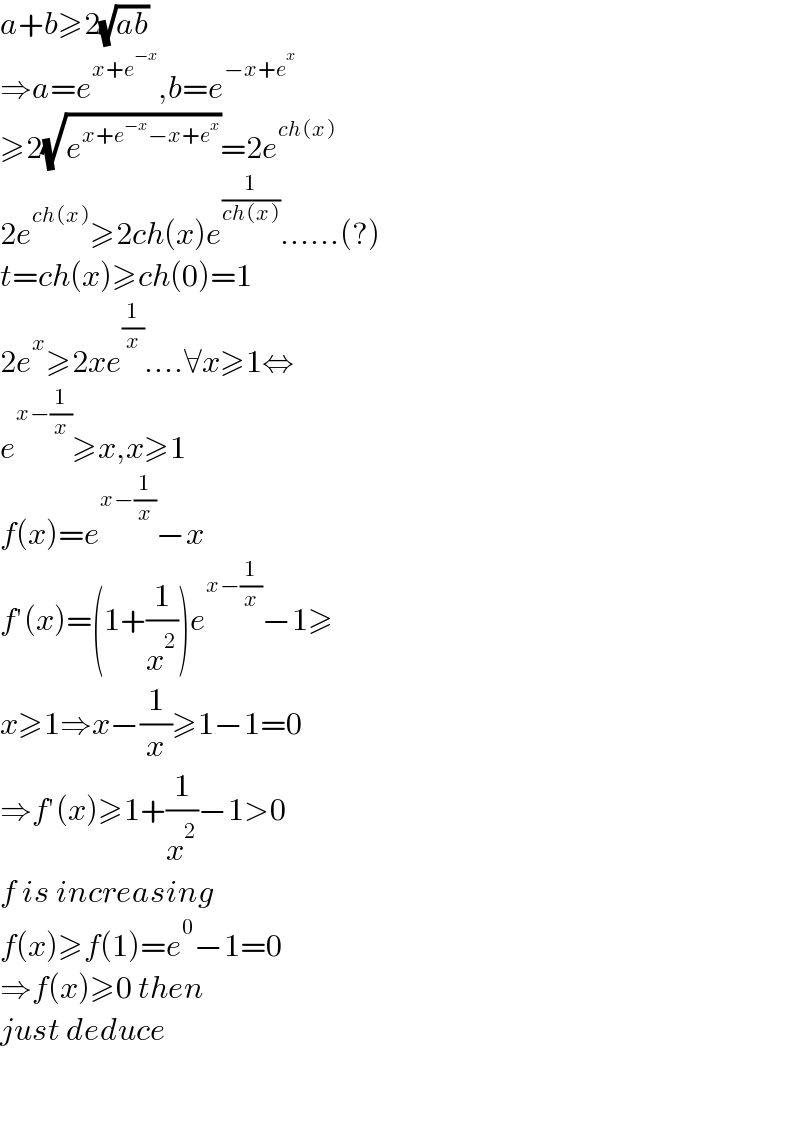
Question and Answers Forum
Question Number 147371 by mathdanisur last updated on 20/Jul/21

Answered by mindispower last updated on 20/Jul/21

Commented bymathdanisur last updated on 23/Jul/21

Commented bymathdanisur last updated on 20/Jul/21

Commented bymindispower last updated on 21/Jul/21

